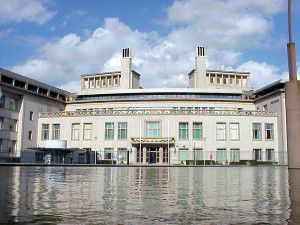
The final case pending before the International Criminal Tribunal for the former Yugoslavia (ICTY) involves Goran Hadžić, the former president of the self-proclaimed Republic of Serbian Krajina, who is indicted for persecution and murder of non-Serbs, as well as unlawful imprisonment, torture, inhumane acts, cruel treatment, forcible transfer, deportation and wanton destruction, and plunder of private or public property. Hadžić was indicted in 2004, but was not located and arrested until 2011. The trial phase of the case is scheduled to begin on October 16, 2012.
Over the past twenty years, the ICTY has indicted 161 individuals and acquitted 13. Of the 64 persons sentenced so far, 39 have either already served their sentences or died while incarcerated. Although the Goran Hadžić prosecution is the Tribunal’s last to begin, 35 of the Tribunal’s trials remain ongoing. The Tribunal also transferred 13 cases involving “intermediate and lower-level accused to competent national jurisdictions.” Another 36 individuals either died pending or during trial or had the indictments against them withdrawn.
In one of its most famous cases, the Tribunal indicted the former Yugoslav President, Slobodan Milošević, for genocide and crimes against humanity in Kosovo, Bosnia and Herzegovina, and Croatia. Ruling on a preliminary motion, the Trial Chamber found that the Prosecutor had presented sufficient evidence supporting most – though not all – of the criminal indictments against Milošević, but Milošević died in 2006 while in detention prior to the Tribunal’s final verdict.
The UN Security Council established the ICTY in 1993 in order to bring to justice all those who committed genocide, crimes against humanity, and violations of international humanitarian law during the conflict in the former Yugoslavia. Although the Tribunal was initially scheduled to finish or transfer all proceedings by 2010, continuing trials and appeals are now expected to last through 2016. This extension is primarily due to the recent arrests of major fugitives including Ratko Mladic, a commander in the Bosnian Serb Army, and Goran Hadžić.
 A key component for concluding the Tribunal is the ad hoc Mechanism for International Criminal Tribunals (MICT), created by the UN Security Council in 2010. The MICT will undertake all remaining functions from both the International Criminal Tribunals for the former Yugoslavia and for Rwanda as they conclude. The MICT branch in Arusha, Tanzania has been assuming responsibility since July, 2012 for the prosecutions not completed by the International Criminal Tribunal for the Rwanda (ICTR). The MICT branch in The Hague, Netherlands will assume responsibility for the former Yugoslavia cases beginning in July, 2013. The MICT will itself wind-down as the pending cases and appeals from both tribunals conclude.
A key component for concluding the Tribunal is the ad hoc Mechanism for International Criminal Tribunals (MICT), created by the UN Security Council in 2010. The MICT will undertake all remaining functions from both the International Criminal Tribunals for the former Yugoslavia and for Rwanda as they conclude. The MICT branch in Arusha, Tanzania has been assuming responsibility since July, 2012 for the prosecutions not completed by the International Criminal Tribunal for the Rwanda (ICTR). The MICT branch in The Hague, Netherlands will assume responsibility for the former Yugoslavia cases beginning in July, 2013. The MICT will itself wind-down as the pending cases and appeals from both tribunals conclude.
Although the ICTY will fold up in the next few years, its impact will continue to reverberate throughout the fields of international criminal law, humanitarian law, and human rights law. In addition to holding political and military leaders accountable for massive violations of human rights, the Tribunal further established precedents for the work of the International Criminal Court and developed complex areas of international criminal law, including the denial of duress as a defense for committing a war crime and the concept of joint criminal enterprise as a mechanism to convict persons involved in planning and carrying out violations of international law.
